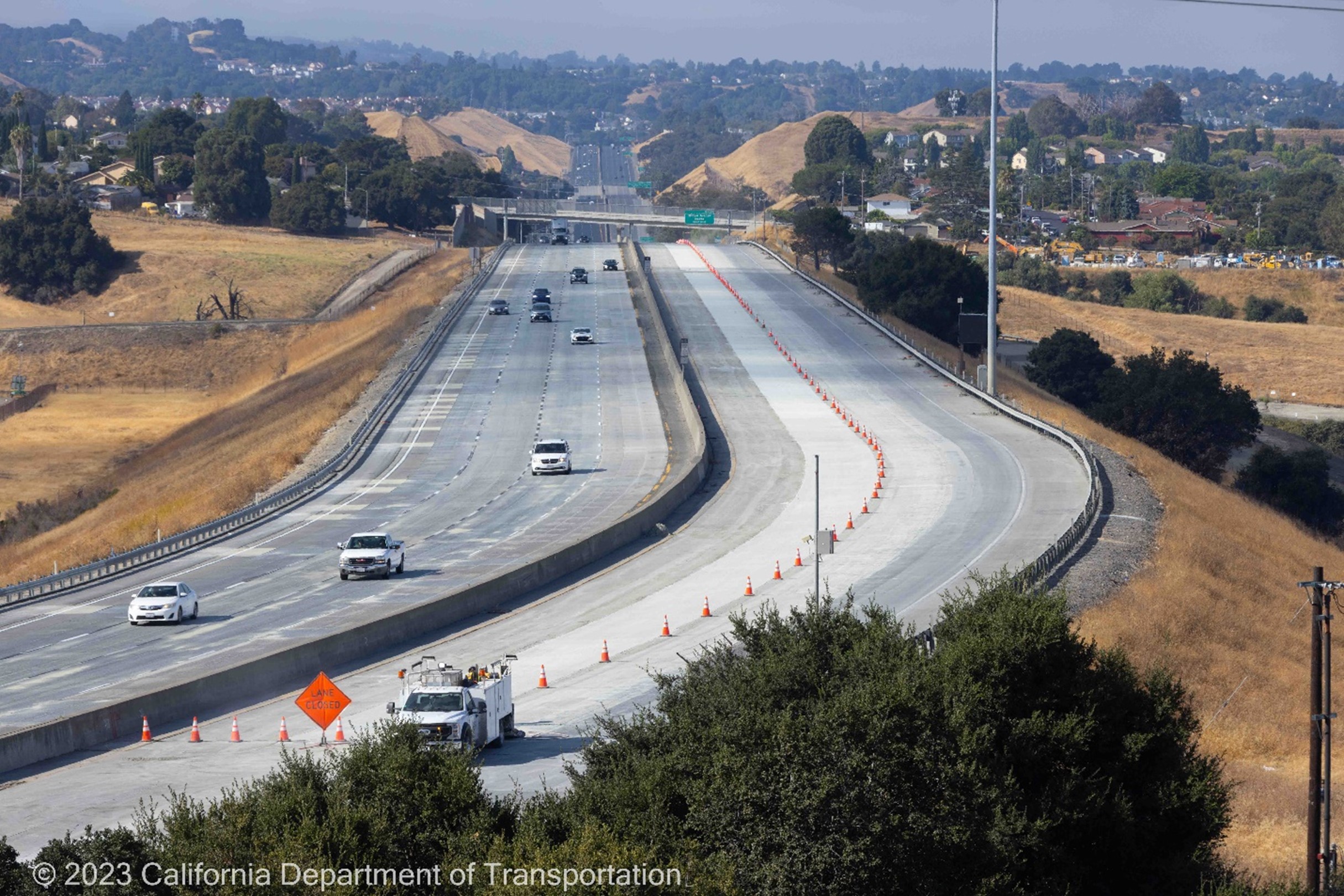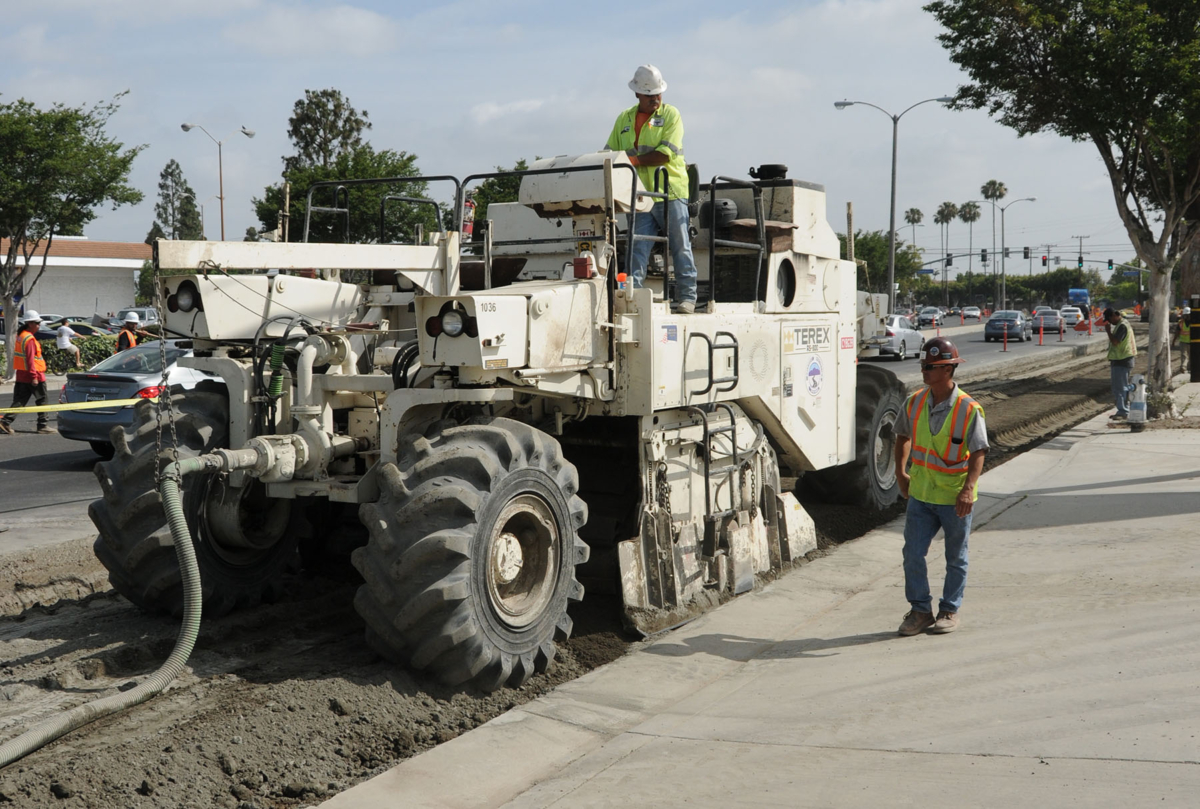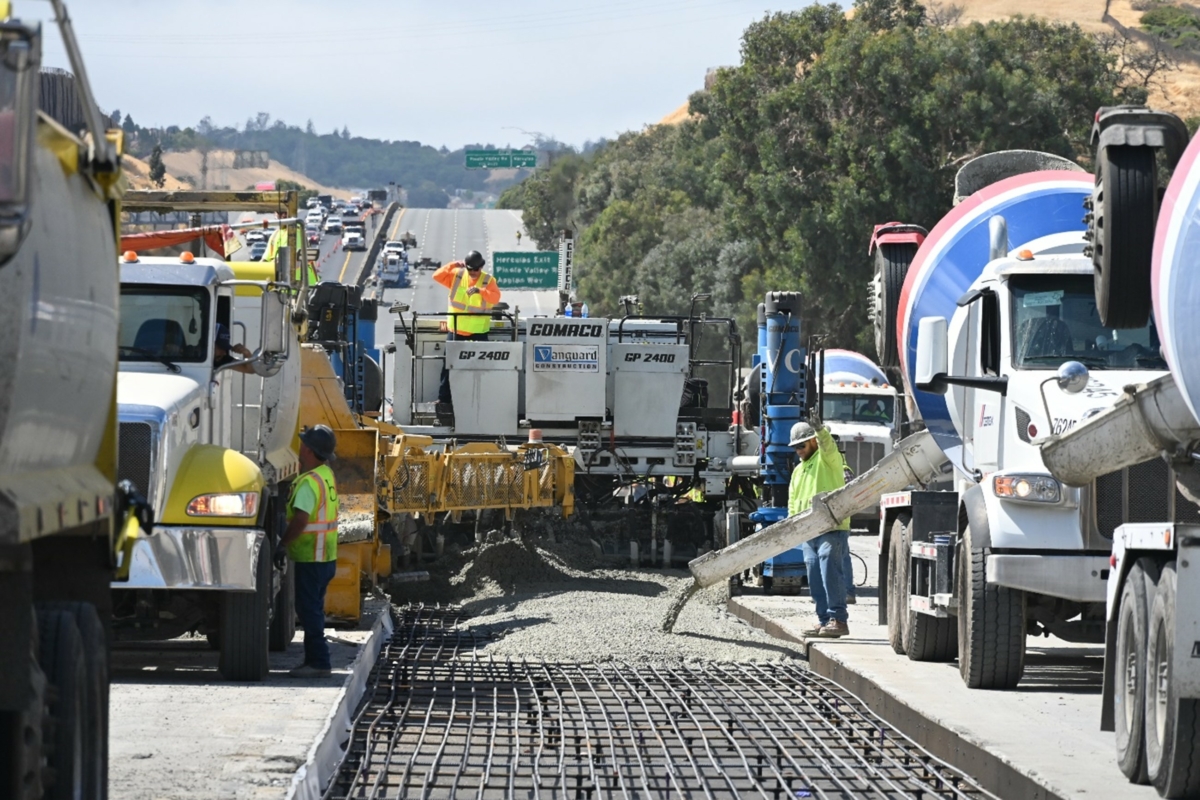By Allen King, Office Chief, Caltrans Office of Concrete Pavements
The Caltrans Office of Concrete Pavements (OCP) is committed to creating and maintaining a more sustainable road network by promoting longer life pavements and cost-efficient technologies to benefit road users.
- OCP has documented millions of dollars in savings based on longer life concrete pavement, more sustainable designs, and subgrade treatment.
- OCP is researching construction methods and designs to prolong the life of concrete pavement by decades for minimal additional costs.
- OCP is educating Caltrans personnel throughout the State of California on more efficient concrete pavement designs and more sustainable foundation designs that include recycling existing materials.
- The highway design manual (HDM) is currently under review with the goal of inserting more sustainable design criteria, such as longer life pavement and foundation/soil stabilization strategies.
- OCP is piloting a cool pavement project in a parking lot adjacent to the Caltrans Sacramento HQ.
Caltrans has identified several projects where cost savings can be justified through longer life, new technologies, and construction efficiencies. While the total savings are currently being calculated, here are brief descriptions of the efficiencies that five approaches are delivering.
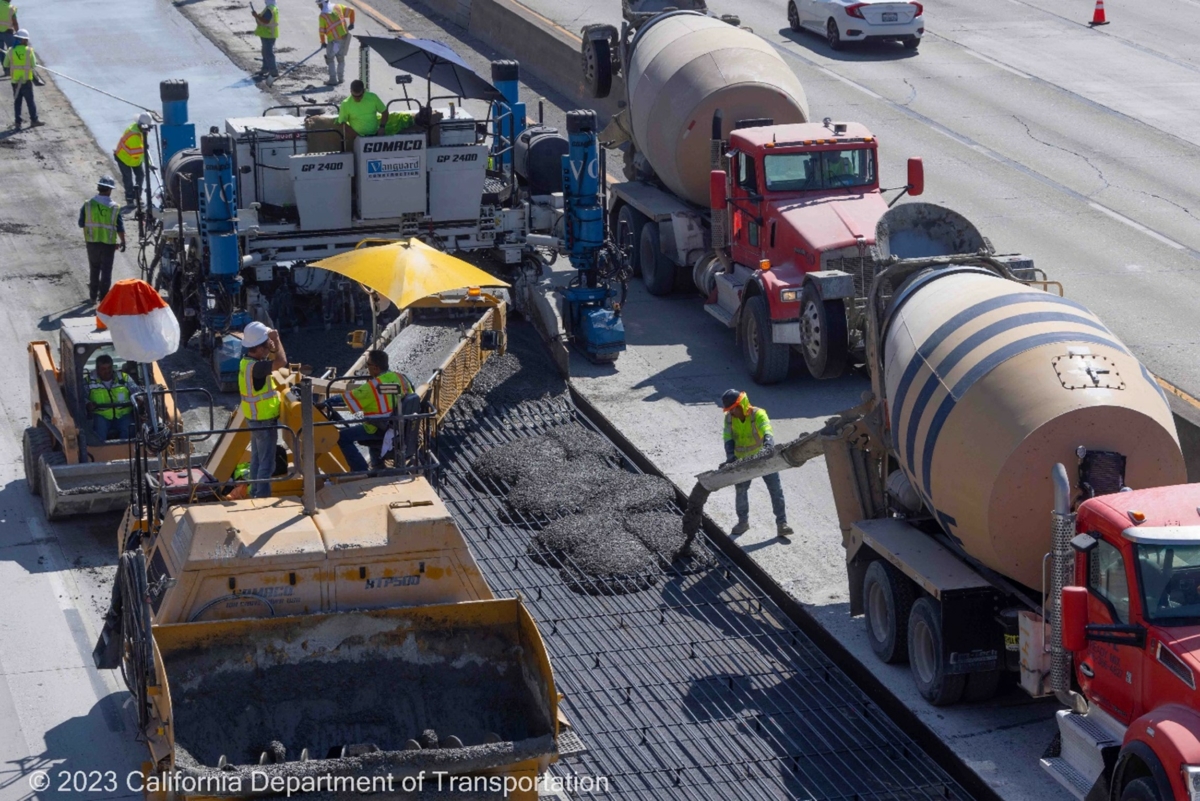 Value Engineering Change Proposal (VECP)
Value Engineering Change Proposal (VECP)
Two projects that are being evaluated for total VECP savings involved changing their project designs to continuously reinforced concrete pavement with rapid strength concrete (CRCP-RSC), which enabled paving completion over weekend closures. The total cost savings include the overall project budget, time-related overhead (TRO), and Caltrans overhead.
As an alternative to importing aggregate subbase for the pavement design, one test project is using a subgrade lime treatment instead, and the cost savings are presently being tabulated. Cement treatment is another more advantageous alternative to imported aggregate subbase.
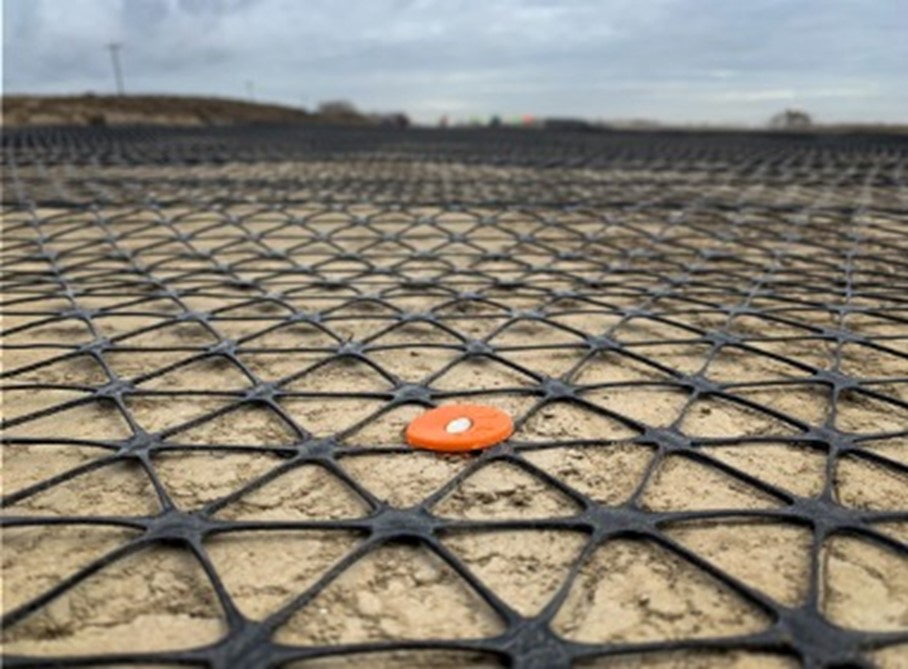 Triaxial Geogrid Enhanced Base
Triaxial Geogrid Enhanced Base
Geogrids have successfully been used to improve soft subgrade and reinforce weak base course by providing lateral confinement. However, uniaxial and biaxial geogrids don’t provide uniform resistance in all directions. In this project, a triaxial geogrid was installed throughout the entire project, eliminating a significant amount of excavation and import of aggregate base. Employing this new technology resulted in notable cost savings.
In this efficiency study, three subject projects were evaluated for the lifespan of their concrete pavements. The results showed that the pavements in the study proved to have a longer life than the initially projected 40 years. Two of the subject projects had a thicker jointed plain concrete pavement (JPCP) design than the 40-year design listed in the highway design manual (HDM) catalog, which contributed to their extended lifespans. The other test project featured continuously reinforced concrete pavement (CRCP), which is designed to last 75 years. Overall savings were notable. Life cycle cost analyses (LCCA*) were used to estimate the cost savings by comparing the construction and estimated rehabilitation costs of the as-built designs with the longer life 40-year JPCP design in the HDM.
*Cost Savings from the LCCA were calculated without a discount rate, to remain consistent with previous years’ reporting.
In this fifth study, two projects were identified as having potential savings because they were constructed as concrete overlays over asphalt (COA) as an alternative to reconstruction, one of the design recommendations. The as-built concrete overlays delivered cost savings over reconstruction of the roadways, as the reconstruction would have included excavation, materials, construction, and extended traffic rerouting due to a longer construction schedule.
The Caltrans Office of Concrete Pavements continues to research, develop, and implement safer, more cost-efficient, and longer life roadways throughout California. The OCP is committed to improvement through testing and education.


